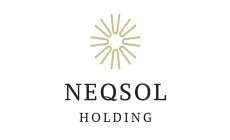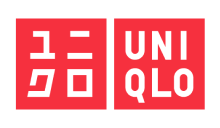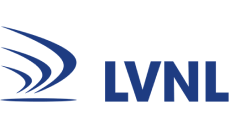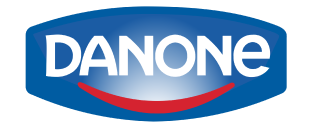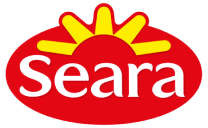Visa & Work Permits in the Netherlands
Below we answer the most common questions HR teams ask when managing global talent mobility.
Most non-EU employees require both a residence permit and work authorisation. In many cases (like the Highly Skilled Migrant scheme), these are combined into one permit. Your company must often be a Recognised Sponsor to apply.
This is the most common route for hiring non-EU professionals.
Key employer requirements:
- Recognised Sponsor status with the IND
- Compliant employment contract and salary level.
Key candidate criteria:
- Relevant skills not readily available in the EU
- Higher education qualifications
- Valid passport and TB screening (if applicable)
Bonus: Partners of HSM permit holders can work freely without employer sponsorship.
No—except for Croatian nationals (within their first year) and UK citizens post-Brexit. Swiss and Japanese citizens have partial exemptions but may still need a residence permit.
Being a Recognised Sponsor with the IND:
- Enables faster permit processing
- Demonstrates your compliance and credibility
- Is mandatory for most knowledge migrant applications
Tip: If your company is not yet recognised, EMG can handle the process or sponsor on your behalf via our Employer of Record solution.
Orientation Year Permit: For recent graduates from Dutch universities. Great early-career pipeline for future HSM permits.
Intra-Corporate Transfer (ICT): For employees transferred from non-EU offices.
Start-Up Visa / EU Blue Card: For innovation hires or senior experts not covered by the HSM scheme.
Partner Permits: For employees relocating with a spouse. EMG supports partner employment and integration to reduce attrition risk.
Tourist/Business Visa: Not suitable for work. Max 90 days stay, no labour permitted.
For Recognised Sponsors:
2–4 weeks for the Highly Skilled Migrant permit after submission.
Without sponsor status:
Delays +3 months are common. We strongly advise starting the process early.
EMG can handle the process on your behalf via our Employer of Record solution.
Hiring doesn’t end at arrival. You must:
- Track annual salary compliance
- Report changes to the IND (job title, hours, salary)
- Renew permits on time
- Prepare for potential audits
EMG offers ongoing compliance monitoring so you stay audit-ready and avoid risk.
The 30% ruling allows eligible employees to receive up to 30% of their salary tax-free for five years (dropping to 27% in 2027). It must be jointly applied for by employer and employee, ideally before onboarding. To explore more on 30% ruling check our FAQ.
This visa is required by some countries if you wish to visit the Netherlands. It restricts your travel time to maximum 90 days within a 180 day period and you are not allowed to work on this permit.
This permit is for non-EU scholars that wish to study in the Netherlands. It is valid until the graduation date of the student. You are allowed to work a maximum of 10 hours per week or during two months during the summer (June, July, and August).
As long as it is part of your education, a work permit is not needed when doing an internship.
For EU/EEA or Swiss scholars, there are no restrictions for working.
In 2013 The Netherlands launched a “golden visa” for foreigners willing to invest € 1,25 million into a company in The Netherlands or in certain selected funds that themselves invest into Dutch companies.
Though, due to further aggravating requirements, over the last five years less than 12 Dutch “Golden Visas” have been issued proving this visa to be very uninteresting for foreigners who want to build a future in and are willing to invest extraordinary wealth into The Netherlands.
Non-EU members will need a business visa to operate in the Netherlands with a maximum of 90 days. Those that apply for the tourist visa, with similar allowance days, will not be allowed to work with that permit.
When you have a spouse that is either from the Netherlands or a member of the EU, you can receive a residence/work permit with the spouse as your sponsor. Setting the partner as your sponsor and allows you to work in the Netherlands freely. There are some records required for this, including a document that you are currently unmarried in your home country.
Your residency status and nationality will dictate if you need a work permit. In the Netherlands, work and residence authorisation are closely linked. Your reasons for moving to the Netherlands – for example, as a highly-skilled worker, employee, student or family member – will determine what kind of authorisation you need to work in the Netherlands legally.
The Netherlands has one of the most globally focused, highly trained, motivated and multilingual workforces in the world. The demand for highly skilled workers is persistingly high. There are incentives for international employees such as a 30% tax ruling and a fast-track highly skilled migrants program. There are various Dutch permits for receiving permission to work and live in the Netherlands, legally, the highly skilled migrant permit, intra-company transfer permit, orientation year permit for foreign graduates or the general work permit.
For a stay of fewer than 90 days, your employer can apply for a short-term work permit for you, which can be used in combination with a Schengen visa or your passport.
For stays of more than 90 days, your employer will be able to apply for a single permit (gecombineerde vergunning voor verblijf en arbeid or GVVA) in your name, which combines the Dutch residence and work permit in one application via the IND.
Citizens from the European Union (EU), European Economic Area (EEA – EU plus Iceland, Liechtenstein and Norway) or Switzerland do not need residence permits or work permits, except those from newer EU member Croatia, whose citizens need a Dutch work permit for their first year.
Citizens of Japan do not need work authorisation to work in the Netherlands. They are only required to obtain a residence permit for long-term stays.
All Dutch work permit applications are processed by the IND (Dutch department of Immigration and Naturalisation).
Applications lodged in the Netherlands can be directly submitted with the IND. Applications from abroad can either be submitted at the Dutch embassy in your country of residence or in case of a sponsor already residing in the Netherlands at the IND.
Have any questions?
We are here to help you
Over 15 years of supporting international professionals as they build their lives and careers in the Netherlands.
